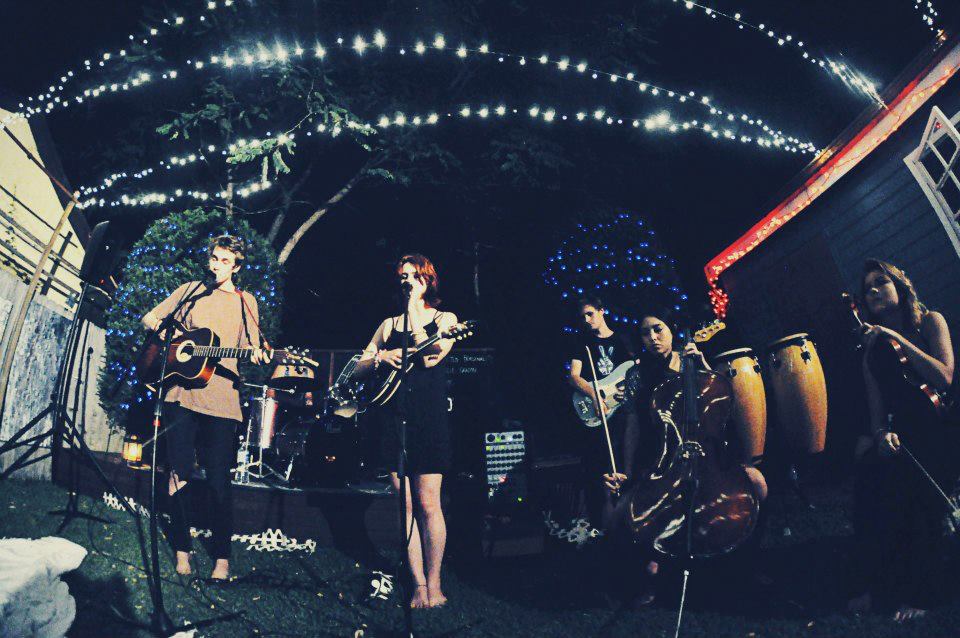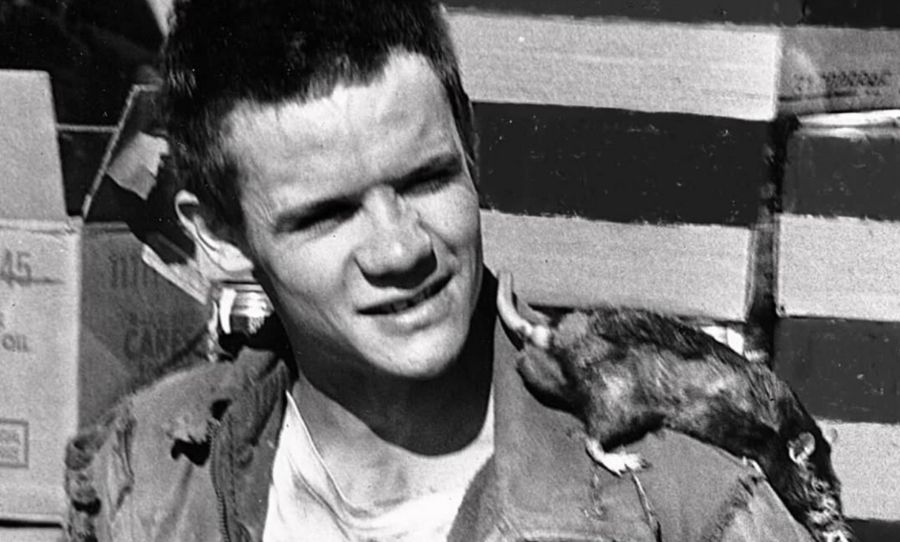There was once a simpler time for the bleeding-heart bedroom poet. A time when guts were spilled into hiss-and-click tape recorders, crystalized on cassettes spangled with Sharpie hearts, and slipped like sacred contraband through ultimately indifferent mail slots.
Something like a lovelorn poem posted from the frontline of emotional bedlam; a pebble on the windowpane and a message of yearning burned into the lawn. It was a time of straightforward expressive transactions: the hopeless romantic leaving his heart at the feet of his would-be woman. All she need do is press it to her ear, bleeding crackly static, and his message would be delivered.

Say good morning to the a breed of bedroom producers of which Charlie Gradon belongs.
The time of the mailbox musician is behind us, alas—but Charlie Gradon’s Hiss EP lives on in its shadow. The 21 year-old singer-songwriter himself describes it on his web page, as though by way of an accompanying gift-tag, as “a long time coming group of songs wrote, recorded and produced in my room”.
And the proof is in the pudding: the recordings have that shallow, sepia-tinged sound; at once intimately close and nostalgically distant, as though Gradon himself is caged in the speakers, wailing between the bars. And yet, presumably like a lot of sorrowful inmates, he seems to be singing, above all, to himself.
In this day and age, emotional lyricism is less about composing a musical love-letter and more about expression as a means of self-realisation. In his song Intimacy, Gradon blurs the title word into the phrase “into me I see” —and in so doing pretty much summarises this private, lovelorn EP: where the only intimacy is with oneself; where familiarity is the product of deep introspection. When he says “you” he isn’t speaking to anyone in particular, just thinking aloud; not pointing his finger at the listener and breaking the ‘fourth wall’, but rather crooning in isolation between the four walls of his bedroom.
This is the nature of the modern bedroom poet, and one that lies at the bedrock of these recordings: a bunch of songs that express for the sake of transcending rather than wallowing – ‘getting it off one’s chest’, so to speak, no matter who it is that hears it.
Whatever it might sound like, Gradon isn’t whining to anyone. He’s telling himself to forget about the “withering leaves” of a dying yesterday, to “disconnect your hands from your youth” (translation: let go of the past), and to say “good morning” to the future of today. And the Lord said: let there be light.

The above quotes can all be found within the fleeting minute-and-a-half of the EP’s opener, ‘Autumn’*, but the theme of forward momentum—of leaping the hurdle and fording the stream—runs throughout the recordings. By the sixth and final song Gradon gives up on mincing his words and shoots straight, muttering “you should know by now I’m not okay”, and by that stage it truly is clear: he’s scorned, sore, and far from being alright.
Even within the space of this one track he seems to be making headway, as the almost pathetic yearning of “feel free to shine your light on me” becomes considerably less selfish: “feel free to shine your light on him; feel free to shine your light on you”. Rather than haunt the deck of a sinking ship, Gradon opts to finally give up the ghost—and in so doing, allow his own personal transcendence and deliverance.
It’s a small spark of light in a pretty dark room, but it’s important to the thematic undercurrent of this EP. In the second track, No One, Gradon reflects that “I’ve been walking, maybe it’s time to run, because you are here” with a similar kind of optimism about distancing himself from the past (not optimistic about her being “here”, but optimistic about the running away).
This track is also the best musical example of uplifting transcendence: a chanting melody that slowly accumulates into a surging, cathartic wave. Drums splash, a cello howls. Other moments, such as Intimacy and Not Okay, touch on a tender Mumford & Sons style vocal aesthetic, as Gradon draws water from his UK roots; whilst EP highlight Murderer of Dreams gets a little more pastoral in the vein of Band of Horses.
And these latter three tracks, constituting the second half of the album, also happen to be the most polished and well produced. Gone is the snap, crackle and pop of the classic ‘home recording’, making room for a more spacious and yet fuller sound. It’s as though, even within the short space of this EP, Gradon is stepping out of the claustrophobic bedrooms of yesteryear and leaving the tape recorder lying on the floor. That past is dead, done and dusted. Say ‘good morning’ to the new-age bedroom poet.
FIND OUT MORE ON
▲ FACEBOOK ▲ BANDCAMP
*except that one about God. You can find that in the Bible.
[bandcamp width=100% height=120 album=2477336224 size=large bgcol=ffffff linkcol=0687f5 tracklist=false artwork=small]



